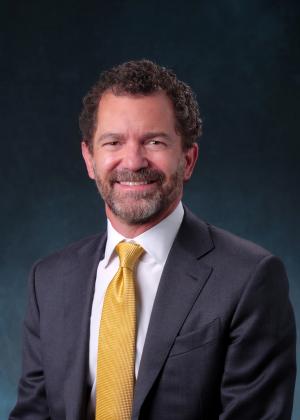University of Colorado Regents name Todd Saliman as finalist for president
FOR IMMEDIATE RELEASE
Contact: Michael Sandler, 720.520.0760, michael.sandler@cu.edu
DENVER – The University of Colorado Board of Regents today voted to advance Todd Saliman as finalist for president of the university system.
The nine-member board’s vote was unanimous.
Saliman, a CU Boulder alumnus, has served as CU’s interim president since July 2021 following his appointment by the Board of Regents. With 30 years of experience in public policy and higher education in the state – including serving in the state legislature, working for two Colorado governors and overseeing CU’s budget operations for more than a decade – Saliman has devoted his career to advancing the state and CU.Regent Sue Sharkey, vice chair of the search committee, said Saliman stood out among the candidates considered because of his “tremendous experience and proven leadership. I look forward to hearing input from our community over the next two weeks.”
Over the next two weeks, board members will receive input from the CU community at open forums with Saliman at CU’s four campuses and the system administration office. The event schedule will be announced soon.
Regents also will meet with leadership teams, governance groups and community stakeholders. The board will consider all feedback from the CU community before meeting again the last week in April to elect a president.
“The importance of this stage of the process cannot be overstated,” said Board Chair Jack Kroll. “The board will not vote on the next CU president until considering all public input, which the board welcomes. We encourage everyone in the community to take part.”
The inclusive search process for CU’s next president launched in September, when the board began holding listening sessions with more than 40 stakeholder groups and soliciting written comments.
The next step was building a search committee that represents the diversity of the university and the state. The board requested that CU community members nominate their peers to serve on the search committee. Many of the members selected came from this group. Every university stakeholder group had a seat or seats on the committee, including students, faculty, staff, deans, alumni and donors, and community groups, and the committee represented Colorado’s diversity.
The board insisted on having a highly qualified and diverse candidate pool. To achieve that, the board hired Storbeck Search, a national recruiting firm with a reputation for building diverse search pools. Hundreds of people expressed interest in the job, and Storbeck presented the search committee with a highly qualified and diverse pool of 39 candidates: 13 women and 26 men – 13 candidates from Black, Indigenous and People of Color (BIPOC) groups – from 20 U.S. states, the District of Columbia and international candidates.
The search committee spent many hours reviewing the candidates and discussing their credentials. They interviewed 10 candidates: seven women and three men – two BIPOC candidates – from seven states.
Per Regent policy, the committee narrowed the field to five highly qualified unranked candidates, who were forwarded to the Board of Regents for interviews. Those candidates included three women and two men – one BIPOC candidate – from five states.
About the CU System
The University of Colorado is a premier public research university with four campuses: the University of Colorado Boulder, the University of Colorado Colorado Springs, the University of Colorado Denver and the University of Colorado Anschutz Medical Campus. With more than 67,000 students (and another 8,000 taking courses for credit) and over 6,200 full-time instructional faculty members, CU is the largest institution of higher education in the state of Colorado. With an annual budget of $5.2 billion, CU generates an economic impact of $14.2 billion annually for the state. CU researchers attracted $1.45 billion in sponsored research funding in fiscal year 2020-21. The university’s Technology Transfer Office has helped launch 190 startups since 1994. Academic prestige is marked by CU’s five Nobel laureates, 10 MacArthur “genius” Fellows, 20 astronauts and 21 Rhodes Scholars. For more information about the CU system, and to access campus resources, go to www.cu.edu.





